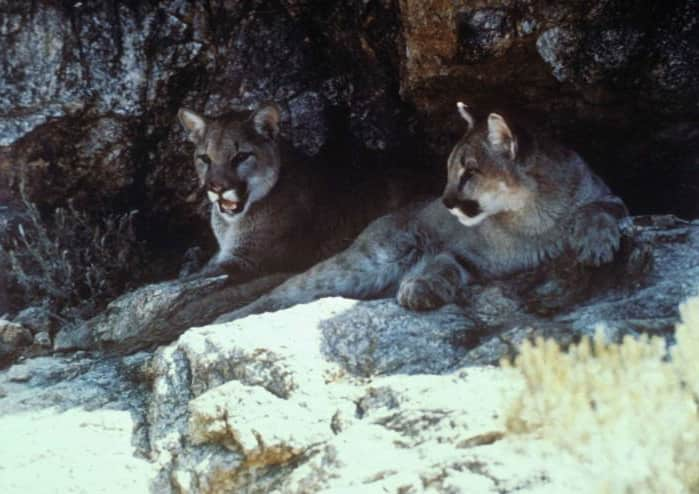Study Finds More Mountain Lions Sticking Together
OutdoorHub Reporters 07.30.14

North America’s largest cat has a reputation for being solitary, but scientists are finding that mountain lions may not be as secretive as once thought. In a recently published study in the journal Acta Ethologica, researchers with the Teton Cougar Project discovered that some mountain lions will freely associate with other members of their species, even accompany each other in the wild.
“No one knows what these guys are doing,” researcher Mark Elbroch told The Jackson Hole News & Guide. “It really creates a mythology. What I’m excited to do is address this mythology directly. What are they doing? Are they fighting? Are they mating?”
Elbroch and his team studied the GPS tracking data from 18 marked cougars and the genetic material from another 68 cats over a period of seven years. In that time the project recorded 92 instances in which two or more cats were in close proximity to each other for a period of several hours, and 190 instances in which the cats stayed together for much longer. Most of these pairings were between males and females, but scientists said the number of associations remained constant across breeding and non-breeding seasons. Female mountain lions will also associate with other females, but males only very rarely will stay in the company of another male.
Jackson Hole residents will occasionally see two or more cats traveling together, giving rise to the rumor that the cougars were forming “prides.” Some speculated that this could be due to harsher winters, scarcer prey, and as defense against the rising number of wolves in the area. Scientists say they have not narrowed down the cause of these associations, but that more information is coming to light as a result of the research.
“One of the things that made us realize that cougars are more social than we originally thought was three or four years ago when a female was shot up [at] the Gros Ventre,” Derek Craighead, who helped to start the Teton Cougar Project, told planetjh.com. “Another female adopted her two orphaned kittens. We suspected the females were probably related so some of the social interactions documenting social behavior may have a caveat that they are social within the recognizable family.”
More recent DNA testing showed that the two adult females were in fact not related. Unlike previously thought, associations between mountain lions were mostly not between family members.
Could it be that the large cats were making friends?
Researchers say they are withholding speculation for now, but suggest that these associations may have something to do with deeper snowfall and the distribution of prey during winter.
“Our results highlighted the notion that solitary cougars are associating, and potentially interacting, on the landscape with regularity and predictability,” the scientists wrote in the study. “Further, our results raised critical questions: If cougars are associating more frequently than previously believed, why do they do so and are these interactions typically agonistic?”

